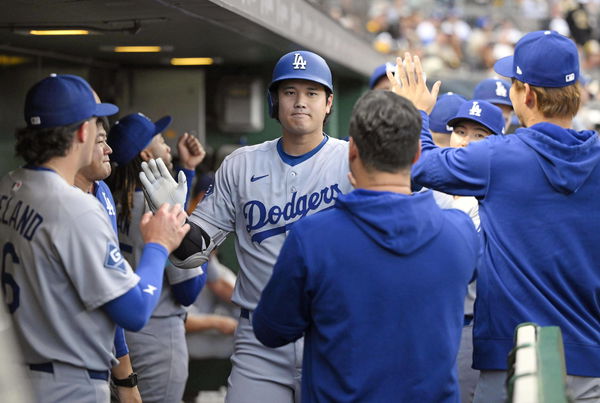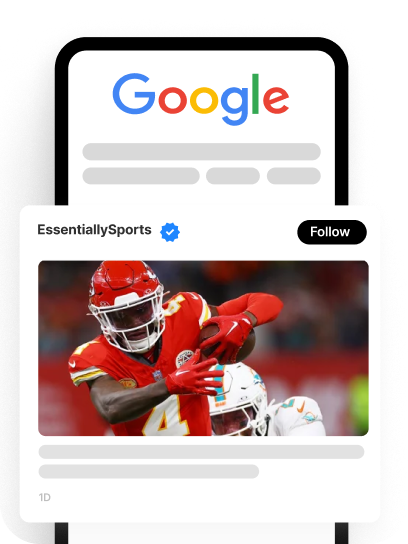
Imago
Credit: IMAGO

Imago
Credit: IMAGO
The Los Angeles Dodgers are currently the team that no one can beat. The Dodgers struggled through the regular season but still finished top of the division. After making it to the postseason, they have dominated every team that has come their way. Out of the 9 postseason games they have played, they have lost just 1 and now lead the NLCS 3-0 against the Brewers. After seeing the Dodgers dominate, fans started to talk about how the Dodgers have spent so much money and the payroll disparity.
Watch What’s Trending Now!
While some fans agree with this, other fans are looking at this from another angle. And one of those named Mike Dro posted, “If the Rays gave Blake Snell and Tyler Glasnow what they wanted, they wouldn’t be Dodgers If the Red Sox gave Mookie what he wanted, he wouldn’t be a Dodger If the Angels gave Ohtani what he wanted, he wouldn’t be a Dodger If the Braves gave Freddie Freeman what he wanted, he wouldn’t be a Dodger Cheap owners created the environment for a super team like the Dodgers to exist. Salary cap doesn’t stop those owners from being cheap.”
The Dodgers’ roster today is built on moments when other teams hesitated to spend. The Rays traded Tyler Glasnow to Los Angeles after recurring injuries made a long-term extension too risky despite his upside. The Padres couldn’t meet Blake Snell’s price when he sought a five-year, $182 million deal. Boston dealt Mookie Betts to the Dodgers in 2020 rather than meet his long-term contract demands. Each move reflected a pattern: teams were wary of paying elite talent what the market eventually proved they were worth.
Freddie Freeman’s departure from Atlanta followed the same script, as negotiations collapsed over a sixth contract year worth roughly $27 million annually. Shohei Ohtani’s free agency underscored the financial divide when he signed a $700 million deal with $680 million deferred, a structure only a few teams could afford. The Dodgers used those deferrals to lower payroll impact while securing elite players other clubs couldn’t fit under short-term budgets. These moments created rare opportunities, and Los Angeles acted quickly while others calculated risk and walked away.
If the Rays gave Blake Snell and Tyler Glasnow what they wanted, they wouldn’t be Dodgers
If the Red Sox gave Mookie what he wanted, he wouldn’t be a Dodger
If the Angels gave Ohtani what he wanted, he wouldn’t be a Dodger
If the Braves gave Freddie Freeman what he wanted, he…
— Mike Dro (@MikeDro_) October 17, 2025
While the Dodgers pour resources into roster depth, several smaller-market clubs continue limiting spending despite stable revenues. The Marlins opened 2025 with a $67.4 million payroll, the White Sox at $82.2 million, and the Pirates at $87.6 million, per MLB data. Each figure is less than a third of what the Dodgers invested this season. The gap isn’t just financial; it’s competitive, reflecting how uneven reinvestment shapes October’s storylines and the frustration fans in smaller markets continue to feel.
Maybe the Dodgers didn’t buy greatness; maybe everyone else just rented mediocrity too long. Snell, Betts, Freeman, Glasnow, and Ohtani weren’t stolen—they were simply left on the shelf. If that’s bad for baseball, then maybe ambition has become the league’s real luxury tax.
Fans react to the Dodgers dominating MLB
As the postseason unfolds, MLB fans are collectively losing their minds over one team’s relentless efficiency. Tyler Glasnow, Blake Snell, Mookie Betts, Freddie Freeman, and Shohei Ohtani have all found new homes in Los Angeles, and the Dodgers are cashing checks like Wall Street bankers. While some grumble about super teams and “stolen” talent, the scoreboard keeps talking, proving that strategy and payroll engineering can be a ruthless, persuasive language.
The comment claims, “They steal everyone’s best players,” reflecting frustration with LA’s aggressive acquisitions strategy. In reality, Glasnow, Snell, Betts, Freeman, and Ohtani were all left by prior teams unwilling to commit. The Dodgers’ payroll reached $350 million in 2025, reinvesting 73 percent of revenue into player costs and depth. While fans may resent super teams, evidence shows thoughtful spending, not theft, built their championship window.
The comment observes, “Eventually Goliath dies, but only if the players choose to want to beat Goliath.” The Dodgers’ 2025 TV revenue, combined with $752 million total income, enables unprecedented spending flexibility. While fans debate fairness, players’ choices and smaller-market teams’ limited reinvestment ultimately define competitive balance in MLB.

Imago
Baseball: Dodgers vs. Pirates Shohei Ohtani of the Los Angeles Dodgers celebrates with teammates after hitting a solo home run in the third inning of a baseball game against the Pittsburgh Pirates on Sept. 2, 2025, at PNC Park in Pittsburgh, Pennsylvania. PUBLICATIONxINxAUTxBELxBIHxBULxCZExDENxESTxFINxFRAxGEOxGERxGRExHUNxISLxIRLxITAxLATxLTUxLUXxLIExMKDxNORxPORxPOLxROUxSVKxSUIxSRBxSLOxESPxTURxUKxUAExONLY A14AA0004815576P
The comment argues, “This logic is like getting mad at the guy who wins the poker tournament.” The Dodgers spent $549 million on payroll plus luxury tax in 2024, reinvesting seventy-three percent of revenue. Other teams’ reluctance to spend comparable amounts effectively handed Los Angeles opportunities to dominate the league.
The comment notes, “The Braves are not a team to be blaming lol it was smarter to go get Olson.” Freddie Freeman left Atlanta after negotiations collapsed over a sixth contract year worth roughly twenty-seven million dollars annually. The Braves prioritized younger, cost-controlled talent while Freeman joined the Dodgers, who absorbed long-term financial risk for championship potential.
The comment observes, “It’s not just the Rays with Snell, the Padres and Giants both had a chance to pay him and they didn’t.” Blake Snell sought a five-year, $182 million deal, but prior teams hesitated due to injury concerns. The Dodgers signed him with substantial deferrals, managing risk while securing a top-tier starting pitcher for contention.
Glasnow, Snell, Betts, Freeman, and Ohtani didn’t need stealing, just homes willing to invest boldly. The Dodgers simply seized opportunities left by cautious teams, turning hesitation into a championship advantage effortlessly. If frustration at Los Angeles spending persists, maybe envy should come with a luxury-tax receipt attached.
